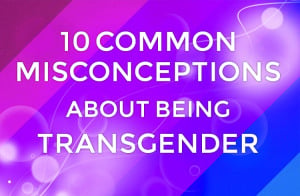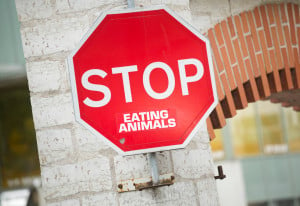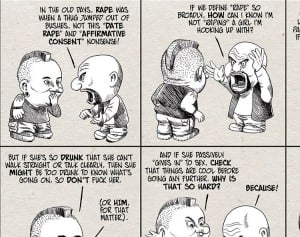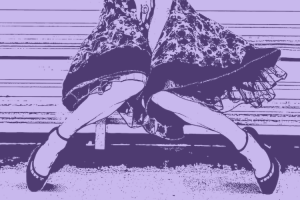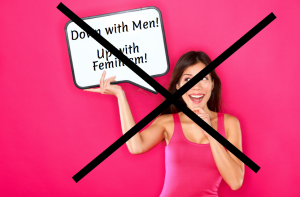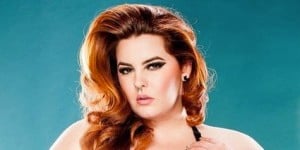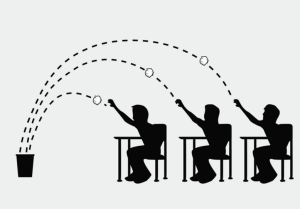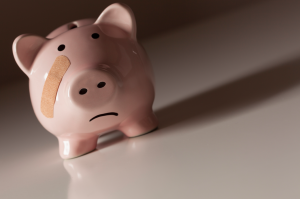
A fat person stands in front of their house, smiling and raising their hands to shoulder level.
(Content Warning: fat-shaming)
“Why are you so fat?”
It’s a question I’ve been asked on and off for about twenty years. At times, by bullies. At others, by friends and family.
It’s also a question I’ve had myriad responses to, depending on the state of my body image and my all-around levels of not-hating-myself.
Maybe I was born a cherub of sorts who never grew out of it.
My mom did love her cottage cheese when I was womb-bound, after all. My Polycystic Ovarian Syndrome also messes with my hormone levels pretty intensely and contributes to ease of weight gain and difficulty of weight loss.
Plus, I have an inherently slow metabolism. And did you know that most of my dad’s side of the family is or has been fat? We’re naturally big-boned. It’s genetics, bro!
I don’t doubt or challenge the validity of these reasons for a lot of people, to the exclusion of the cherub thing, perhaps. There are uncountable contributors to one’s weight, many of which extend far beyond what’s going on inside our bodies.
That food prices are rising – while “healthy” foods have always been more expensive anyway – is undeniable, leading to more fatness in lower-income families than higher-income ones.
The intersection of “obesity” and class? Yeah, it’s very real.
Also real? Our oft-utter lack of understanding for what constitutes a healthy meal or a healthy body in the first place.
There are also a lot of reasons I’m fat. But the truth is that these days, I’m mostly fat because I want to be.
Cue audible gasping.
Like most baby-fats, I was taught to be a good fatty pretty early on – like, from the moment a very young, third-grade me had to start shopping in the women’s section because kids’ clothing no longer fit.
I was taught to strive towards “positive” change, because the construction of thinness as inherently healthier, prettier, and more tolerable was ingrained in every person I had ever known.
I was taught to make an effort in gym class so that I didn’t seem undisciplined. While my friends had high-calorie Lunchables or pocket money for cafeteria pizza, I was forced to eat raw vegetables and low-calorie cold cuts inside whole grain bread.
As an adult, however, and in no small part thanks to immersing myself in people’s work concerning fat positivity and radical body politics overall, I’ve realized a simple truth: My existence, and the appearance of the body accompanying that existence, never needs to be justified.
The good fatty trope – the one that tells us we need to shrink, to say sorry for our rolls, to feel guilty, to self-loathe – arguably lives to sell us shit.
Hello, weight-loss supplements, diet culture domination, and an idea of empowerment built purely on fat-shaming that separates “good” bodies from “bad” ones and gets us all closer to the goal of aesthetic homogenization, because who the hell would ever want a muffin top anyway?
It’s me, though. I want a muffin top. And I’m pretty damn tired of pretending otherwise in order to make anyone else feel less uncomfortable about being in my presence.
But whether you are a fat person who wants your muffin top or not isn’t really what I want to debate: What I want to debate is the notion that you need to apologize or hide it.
You don’t need to constantly work towards being smaller or convincing everyone around that that you at least want to be smaller. You can defy the good fatty trope.
And here are some ways to do just that.
1. Wear Something That a Magazine Once Told You Was Reserved for Others
I understand that experimenting with fashion isn’t for everyone, nor should it have to be.
However, if you’ve ever found yourself dreaming of wearing a crop top, booty shorts, disco pants, a backless dress, horizontal stripes, or even a bikini (yes, a two-piece, belly-baring bikini) but stopped yourself for fear of “disgusting” a stranger you encounter while grocery shopping, my advice is to go for it anyway.
I won’t lie: Sometimes people will say shit. Sometimes they’ll say it to their friends, but you’ll know beyond a doubt what’s going on.
Sometimes they’ll say it to you, and you might not immediately have the words for a comeback. And maybe you’ll feel crappy about all of it, which is totally fair.
That said, these people’s offense is not your problem. You are not doing anything wrong by dressing in a way that brings you joy.
And you don’t need to give a fuck about how uncouth they think your lardy legs look in those hot pants.
If in doubt, take a moment to ask yourself whether such humans would be offended or angered if a thin person did exactly the same thing you are doing. Would that thin person’s crop top be cause for concern? Would their bare midriffs inspire hate?
If not, know that you are entitled to that same kind of freedom.
2. Don’t Feel Pressured to Turn Yourself into an Hourglass
“Plus size,” like fatness, is a spectrum that still leads to some bodies generally deemed “better” while others are generally deemed “worse.”
The good ones in this instance (as it applies to female and feminine bodies) are the hourglass ones: The ones with fat in the “right places” – with large breasts, small waists, plump rumps, and no visible cellulite or stretch marks.
Such figures are far more accepted than the ones that require two seats on an airplane, the ones that risk being denied healthcare based on BMI alone. Medical fat-shaming can kill.
Some of us just have boxy bodies. We can be top-heavy, we can be bottom-heavy, we can have double bellies, we can have flat chests, we can have double chins, we can have cankles, we can have stretch marks adorning every inch of our stomachs, and we can have faces that do not align with Eurocentric standards of beauty whatsoever.
And guess what. Every single type of fat body is fucking rad.
So try to remember that it is not only the hourglass bodies that get to have fun with clothes or be treated like human beings. Eschew the waist belts and corsets if they’re not your thing. Don’t pad your bra if it makes you feel uncomfortable.
Try to allow yourself to be photographed as you are; and not as you think you have to be in order to be “pretty” or acknowledged as human by anyone else.
3. Ask Yourself Why You Want to Post That Workout Selfie or Kale Salad Snap
I used to work out pretty regularly. When I did, I’d make sure to tell my friends. I’d feel a sense of twisted pleasure in knowing that my fat ass could withstand the elliptical machine in ways my size-two bestie simply couldn’t.
Similarly, I used to order salads (no dressing, obvi) at Applebee’s when everyone around me was ordering burgers and fries and milkshakes.
I made sure people knew I was making “healthy” choices as per the way I knew they viewed health. And I did it all as a means of proving myself, of seeming like a better, less hot-mess kind of person.
Now, there is no shame in eating things that make you feel good. Nor is there any shame in moving your body in ways that make you feel empowered and energized.
There is, of course, quite a bit of shame in expecting that everyone can or wants to live their lives precisely as you think they should – including to accommodate whatever narrative of health you like to exist alongside.
To be honest, you don’t owe anyone proof of your health or fitness levels. You don’t owe them a printed outline of your blood pressure. You don’t owe them photographic evidence that you hit the gym today or ate fewer than a certain number of calories for lunch.
So, please take a moment to interrogate the motives behind that Instagram pic you want to snap.
4. Don’t Edit Your Cellulite, Stretch Marks, or Double Chin Out of Photos
Did you know that over 90% of cis women get cellulite? Or how about the fact that 90% of pregnant people get stretch marks, while 70% of non-pregnant people and 40% of cis dudes get them, too?
How about the notion that loads of thin people have double chins, just as loads of fat folks do?
Now, isn’t it pretty damn astounding that features almost all people seemingly possess can be coated in such levels of stigmatization? Or even that they could be pinned on fatness, specifically, when they are so clearly universal?
We need to normalize what bodies can actually look like.
We need to see more “before” pictures and less “afters.” We need to teach our kids that these things being harped on as “flaws” are nothing but standard aspects of life and all that comes with it: of growing, changing, evolving.
But I don’t think we can do that if we keep hiding them.
5. In Fact, Share Full-Figured Snaps on Social Media (Yes, Including Dating Profiles)
This can be difficult. It can be difficult because we live on a planet where putting full-bodied photos of your visibly fat body on the Internet might mean that someone steals them.
Maybe they’ll Photoshop them to make you look thinner. Maybe they’ll Photoshop them to make you look like a whale meme.
Maybe they’ll clock your existence, hate you for living so openly, and go so far as to set out to hack into your life and destroy quite a lot of it.
This shit is hard. And yeah, it can be dangerous sometimes.
But it also matters. No inch of your body is unattractive or shameful. No part of it needs covering up beneath tarps (unless that’s your style).
No part of it means you can’t find a partner – be it for a night or for forever.
No part of it means you’re unworthy of the hook-up culture largely kept alive by smartphone apps.
No part of it means you can’t have super-hot sex.
6. Reiterate That You Can Be Fat and Beautiful at the Same Time
As a fat person, you’ve probably heard something like “You’re not fat – you’re beautiful” from well-meaning friends who have not yet realized that those things can be true simultaneously.
Chances are, you’ve also heard something like “You’re not beautiful – you’re fat” by not-so-well-meaning non-friends.
While fat acceptance and self-acceptance should arguably be focusing on a lot more than physical beauty, there is no shame in wanting to feel pretty or cute or handsome or generally great.
And the thing is, you already are.
Your rolls? Yeah, they’re pretty adorable. Your double belly? Totally sexy. Your chafing thighs? Okay, maybe a little painful, but those thighs are banging.
Oh, and your “bingo wings?” Damn, bae.
7. Point Out and Be Critical of Fat-Shaming IRL or in Media
We’re arguably at a point (both in a micro/personal level and a macro/sociopolitical one) during which it’s time to stop letting bullshit slide. You don’t have to be the brunt of every joke on that show.
Fat actors? They don’t have to be cast in “sad fatty” roles almost every single time they are allowed on screen (and there aren’t many times).
Your body type needn’t ever put you at risk of size discrimination that might mean you cannot get a job, or the salary you deserve, or the medical care you need, or the fair trial you have been promised.
Tackling this stuff is daunting, for sure. So maybe start small.
Like, when your mom or friend or cousin or professor is belittling fatness, remind them that they are also belittling you.
Tell them it’s not cool, because often, they might just engage.
8. Remind Yourself That You Don’t Need Excuses
I love to tell people that I am fat predominantly because I want to be.
I love to tell them that I feel at home in my almost 300-pound body in a way I never did in my 200 or 160 or 120 one.
I like to tell them that my big belly makes me feel powerful in the bedroom: like a goddess or some shit. I like to tell them that my mental health has never been better, that I have never been happier.
I tell them all this as a reminder to both myself and them that no one needs to justify their body.
Not fitting into a box of aspirational beauty (as defined by toxic cultures and people and narratives) is not a crime, no matter how hard some may try to make you feel otherwise.
9. Be Loud
You, fellow fatty: You can be loud. You can dress in bold prints. You can call out fat-shaming. You can refuse to change, unless you know beyond a shadow of a doubt that the change would be for you.
You can live and do the things you want to do in the body that you have.
You can have the sex. You can wear the bikini. You can fly on the airplane. You can fight for your right to medical care.
You can question systems of oppression instead of blaming yourself for the oppression you are facing.
You can commit to living freely, just as anyone in a body more “conventionally attractive” than you would. You can stop saying sorry.
You can start saying, “Enough.”
***
I often find myself wishing for a redo, wondering what those twenty years of my life would’ve been like if I had learned sooner that I was not the problem.
Every time, I come to the conclusion that I would’ve been happier.
Would I have been spared the fat-shaming? Would my relatives have stopped trying to put me on Special K meal plans and Jazzercise weight loss programs at fourteen? Would I have not been condemned for occupying a bus seat and a half on the way to school?
Nah. Definitely not.
I would have known, however, that these problems were not a result of my body. In fact, my body was not my enemy at all.
And all that intolerance I directed at it would have perhaps been saved for tackling the people, the institutions, and the narratives telling me that only a small person is a good person.
[do_widget id=’text-101′]
Marie (otherwise known as Miggle) Southard Ospina is a Contributing Writer for Everyday Feminism. She is a freelance journalist and size acceptance activist. Her loves include: writing about plus size fashion, body politics, and fat positivism; watching a lot of sci-fi; and listening to ungodly amounts of folk music. She can be found discussing body image on Good Morning America and StyleLikeU, with writing on Bustle, Refinery29, BuzzFeed, Huffington Post, and Volup2. Read her articles here.
Search our 3000+ articles!
Read our articles about:
Our online racial justice training
Used by hundreds of universities, non-profits, and businesses.
Click to learn more






